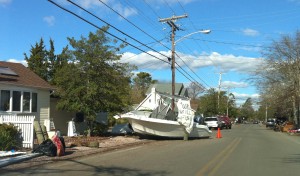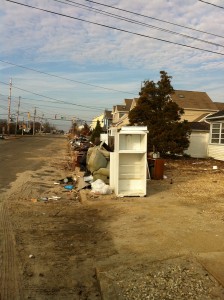Save Your Receipts in a Disaster or Risk No Payback from FEMA
 The purpose of the federal government and FEMA is to help citizens after a disaster. While they may be on site to provide relief in the short-term, there is a chance that down the road, you could be paying deeply for that help. FEMA can offer money for the replacement of items, help repair a home and assist in moving costs so long as they relate to the disaster. However, you have to be extremely careful about tracking your expenditures by keeping receipts for everything that you buy during this time.
The purpose of the federal government and FEMA is to help citizens after a disaster. While they may be on site to provide relief in the short-term, there is a chance that down the road, you could be paying deeply for that help. FEMA can offer money for the replacement of items, help repair a home and assist in moving costs so long as they relate to the disaster. However, you have to be extremely careful about tracking your expenditures by keeping receipts for everything that you buy during this time.
Keep Those Receipts
According to information straight from FEMA, you will need to keep your bills and receipts for three years. The purpose of the receipts is to show how you used the relief money to meet your needs during the disaster. If you don’t have receipts to show how you spent the money, then the government may expect you to pay it back.
This seems somewhat callous. But, looking at it from the other side provides an understanding of why they have this rule in place. This helps to prevent fraud, and during a disaster, fraudsters come out of the woodwork looking for every which way possible to make a profit, even if it means stealing from the government and possibly taking money away from someone that really needs it.
If you don’t have the receipts, then FEMA simply won’t believe it happened. It’s as simple as that.
 The Midst of a Disaster Is Chaos
The Midst of a Disaster Is Chaos
Of course, in the middle of a disaster, the last thing that most people think about is getting receipts. They have so much else on their mind that receipts don’t factor into the picture. This is a mistaken way of thinking though which you’ll want to get out of your head before you actually have to face a disaster of your own.
If you buy items on a credit card, then you are in luck, since you will have proof of purchase. However, after a disaster, there is a chance that you will have to use cash, as the machines for taking credit cards might be down. If this happens, you won’t get a traditional receipt. How can you prove this to FEMA? Make sure you have the store hand-write a receipt for you. You shouldn’t feel bad about asking them. Providing a receipt is part of their duty, and you will need those receipts.
Which receipts should you keep? All of them! When you send them in to FEMA, make sure the receipts you send really related directly to the disaster. Having receipts for everything that you buy will certainly help you in the event that you have an audit. Keep in mind that this is a program for those who are in need, so don’t try to take advantage of it. Remember, it’s an essential needs program, not the insurance company which (hopefully) replaces everything.
Making Copies
FEMA will want to have you send in the original receipts. There’s a huge chance they might lose those receipts, and they usually do. Never send in the only copies of your #disasterreceipts. You’ll need to have several copies of all of your receipts for other things, such as your taxes. FEMA makes you jump through a series of increasingly difficult hoops to get the money you need, and you need proof to ensure you won’t be paying them back later. Remember – receipts, receipts, receipts. Also remember which receipts to keep. Ask yourself one question – did the storm make me buy this? That does not include a trip to Hawaii to relieve stress!

No comments yet.